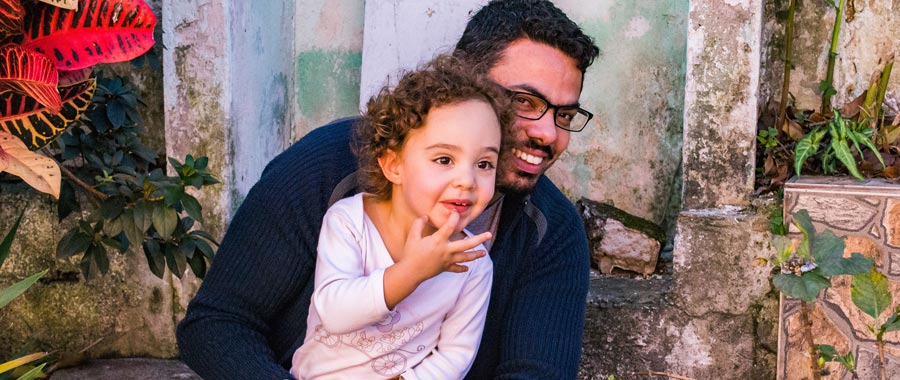Fatherhood has long been an enduring subject of fascination, inviting both reverence and scrutiny. In many cultures, the archetype of manhood is inextricably linked to the role of a father. Various societal narratives suggest that the essence of masculinity is often encapsulated in the ability to procreate and nurture one’s offspring. However, within Bahá’í teachings, there exists a more profound discourse surrounding fatherhood that seeks to redefine and elevate the role of fathers beyond conventional paradigms. This article elucidates how Bahá’í principles challenge traditional definitions of masculinity through the lens of fatherhood, exploring deeper themes such as spirituality, service, and moral education.
At the core of Bahá’í teachings is the concept of the oneness of humanity. This integral belief underscores the notion that all human beings are interconnected and equal, transcending artificial divisions such as race, class, or gender. When applied to fatherhood, this principle invites fathers to adopt a holistic perspective, embracing empathetic and nurturing qualities traditionally regarded as feminine. By embodying attributes such as compassion, patience, and emotional availability, fathers can foster deep connections with their children, significantly enhancing the emotional and psychological well-being of the family unit.
This redefinition also necessitates a departure from the stoic, detached father figure often celebrated in patriarchal societies. Instead, the Bahá’í discourse on fatherhood encourages men to engage in open communication with their children, illustrating vulnerability as a strength rather than a weakness. This juxtaposition not only enriches familial relationships but also fosters an environment where children feel secure in expressing their emotions and thoughts early in their development.
The Bahá’í framework emphasizes the importance of moral education, asserting that fathers play a pivotal role in instilling ethical principles in their children. The Bahá’í writings advocate for an education that transcends mere academic achievement, urging fathers to be active participants in their children’s learning journeys. A father’s engagement can take many forms; from discussing moral quandaries to exploring the nature of truth and justice, these interactions shape how children perceive and approach the world. They become interwoven not just with facts but also with a moral compass that guides their decisions and behaviors throughout life. This approach elevates the father’s position from that of a mere provider to a crucial architect of character and convictions.
Furthermore, fatherhood in the Bahá’í context is inextricably connected to service. The concept of service is not limited to acts of charity or community involvement; it extends to the nurturing tasks that fathers undertake within their families. The Bahá’í faith teaches that true fulfillment is found in selflessness and devotion. Thus, fathers are encouraged to regard their parental responsibilities as a sacred service to their families and society at large. This transformative view of fatherhood reconceptualizes men’s roles and inspires them to dedicate themselves fully to the development of their children, viewing each moment as an opportunity for nurturing and growth.
The spiritual dimension of fatherhood is another critical aspect emphasized within Bahá’í dialogue. The belief that human beings possess an inherent spiritual essence underscores the father’s duty to not only provide for the physical and emotional needs of their children but also to facilitate their spiritual growth. Fathers are urged to cultivate an atmosphere conducive to spiritual exploration, where children can develop a relationship with the divine and engage with concepts such as prayer, meditation, and service to humanity. This elevates the role of fathers from mere guardians to spiritual guides who illuminate the path of righteousness for their children.
Moreover, the Bahá’í teachings highlight the significance of teamwork and collaboration between parents. The image of a cohesive partnership not only maximizes the effectiveness of parenting but also models for children the value of equality and shared responsibility. Fathers are encouraged to collaborate with mothers in decision-making processes, presenting to children a unified front that reflects harmonious principles. This demonstrates the Bahá’í understanding of gender equality, reiterating that both parents possess unique strengths that, when combined, foster a balanced and enriched home environment.
Addressing the societal pressures and expectations surrounding masculinity, the Bahá’í perspective presents an opportunity for men to critically reassess their roles. Embracing vulnerability, empathy, and a focus on moral and spiritual development undoubtedly challenges antiquated notions of masculinity. The essence of fatherhood, as portrayed within these teachings, transcends traditional patriarchal definitions and invites men to reformulate their identities in ways that align with divine principles and greater societal harmony.
As fathers integrate these Bahá’í ideals into their parenting, they contribute to the overarching movement towards a more compassionate and spiritually aware world. The transformation involves not only personal growth but serves as a catalyst for societal change. By consciously redefining what it means to be a man through the framework of fatherhood, individuals can contribute to the creation of a future characterized by unity, love, and mutual respect.
In conclusion, the Bahá’í teachings regarding fatherhood present a profound invitation for men to embrace an expanded definition of masculinity—one that includes compassion, collaboration, and spiritual responsibility. In doing so, fathers not only enhance the lives of their children but also play a pivotal role in shaping a more just and harmonious society. The liberation from traditional stereotypes offers a pathway for men to participate in the holistic development of future generations, fostering a legacy rooted in love, equity, and service to humanity.
